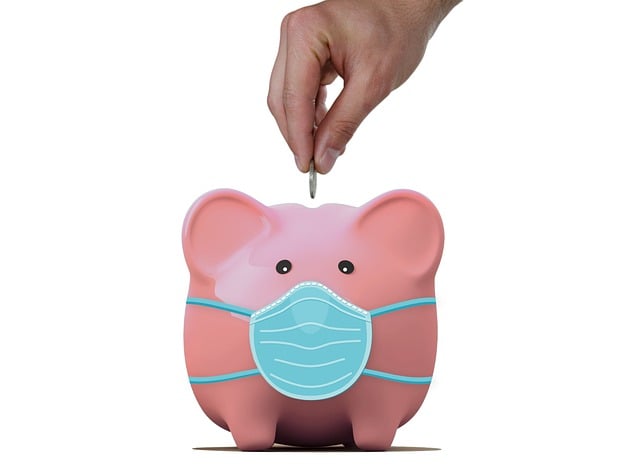Bad credit debt consolidation loans streamline multiple high-interest debts into one lower-rate loan, simplifying payments and improving financial health. Evaluating income, expenses, and goals is crucial before consolidating. Comparing rates and terms ensures informed decisions. These loans can significantly ease financial strain by combining debts into one manageable payment, but strict budget adherence and a comprehensive repayment plan are vital to success.
Struggling with multiple credit card debts? A Bad Credit Debt Consolidation Loan could be a powerful tool to simplify your finances. This article guides you through the process, offering insights on understanding and leveraging consolidation for reduced monthly payments. From assessing your financial situation and goals to exploring various consolidation strategies and effective management tips, discover how to take control of your debt.
- Understanding Bad Credit Debt Consolidation Loans
- Evaluating Your Financial Situation and Goals
- Exploring Consolidation Options and Strategies
- Effective Tips for Managing and Repaying Consolidated Debt
Understanding Bad Credit Debt Consolidation Loans
Bad credit debt consolidation loans are designed to help individuals with low or damaged credit scores combine multiple high-interest debts into a single, more manageable loan. This strategy allows borrowers to simplify their repayment process by reducing the number of payments they need to make each month and potentially lowering their overall interest rates.
When considering bad credit debt consolidation loans, it’s essential to understand that these loans often come with higher interest rates due to the increased risk for lenders. However, they can be a valuable tool for those who are committed to improving their financial situation. By consolidating debts, borrowers can free up extra cash flow each month and focus on building positive payment history, which can gradually enhance their credit scores over time.
Evaluating Your Financial Situation and Goals
Evaluating your financial situation is a crucial step in managing credit card debt. Start by assessing your current income and expenses to understand your cash flow. This involves reviewing your take-home pay, fixed costs like rent or mortgage, variable expenses such as groceries and entertainment, and any existing debt payments. Once you have a clear picture of your finances, define your goals. Are you looking to reduce monthly payments, lower interest rates, or both? Understanding these objectives will guide your consolidation strategy, especially when exploring options for bad credit debt consolidation loans that suit your financial needs.
When evaluating, consider the interest rates on your current credit cards and compare them with potential consolidation loan rates. A lower interest rate can significantly reduce the overall cost of repayment. Additionally, assess the terms and conditions of each card, including any fees or penalties associated with early repayment or missing payments. This analysis will help you make informed decisions about consolidating your debt, ensuring a more manageable financial burden and potentially saving money in the long run.
Exploring Consolidation Options and Strategies
When considering credit card debt consolidation, exploring various options is crucial. One popular approach is through Bad Credit Debt Consolidation Loans, designed to help individuals with low or poor credit scores. These loans offer a chance to refinance multiple high-interest debts into a single loan with a potentially lower interest rate, thereby simplifying monthly payments. Lenders often structure these loans to cater to different credit profiles, providing tailored solutions for debt consolidation.
Several strategies can be employed during this process. Refinancing could involve switching from a variable to a fixed-rate loan, offering stability and predictability in repayments. Additionally, some lenders offer debt management programs that freeze interest charges while helping create a repayment plan, giving you more control over your finances. Understanding these options is key to making an informed decision about consolidating your credit card debt effectively.
Effective Tips for Managing and Repaying Consolidated Debt
Managing and repaying consolidated debt effectively requires a strategic approach. One key tip is to prioritize high-interest debts first, as this can significantly reduce the overall cost of repayment. Additionally, creating a strict budget and sticking to it is essential. Track your expenses and allocate specific funds for debt repayment, ensuring that you meet minimum payments on all accounts while channelling extra resources towards the most costly debts.
Another effective strategy is to consider bad credit debt consolidation loans, which can provide better interest rates and terms compared to individual credit cards. These loans allow you to combine multiple debts into one manageable payment, simplifying your financial obligations and potentially lowering monthly payments. However, it’s crucial to shop around for the best loan terms and ensure that you have a solid plan to repay the loan in full to avoid falling back into debt.
Debt consolidation can be a powerful tool for managing credit card debt, especially for those with bad credit. By understanding your financial situation, exploring various consolidation options, and implementing effective management strategies, you can reduce monthly payments and gain control over your finances. Remember, while consolidating debt is a step towards financial freedom, it’s crucial to choose the right loan type and create a realistic repayment plan to avoid further financial strain. With dedication and smart planning, you can navigate the path to debt-free living.
